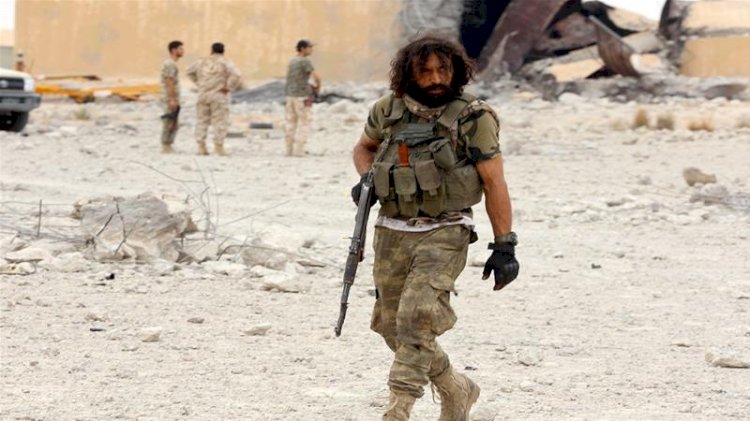Libya: GNA-aligned forces retake military camps near Tripoli

Forces aligned with Libya's internationally recognised government have retaken three military bases from eastern-based military commander Khalifa Haftar's Libyan National Army (LNA) south of the capital Tripoli.
In a statement on Saturday, military spokesman Mohamed Gnunu said troops loyal to the Tripoli-based Government of National Accord (GNA) overran the Yarmouk, al-Sawarikh and Hamza camps.
In a two-minute audio speech addressed to his forces on Saturday, Haftar said they "will fight and fight" against what he called "Turkish colonialism". "To our brave officers and soldiers, you are fighting a
holy war that is open to all fronts, a comprehensive war in which there is nothing but victory," Haftar said in the speech. Reports from Tripoli indicates the GNA's gains were a major setback for Haftar.
"Al-Yarmouk military camp had been set by the LNA as some kind of central command to run the battles in southern Tripoli," he said. "The base was controlled by Russian mercenaries from the Wagner Group ...
The government has told displaced civilians not to return to their homes because LNA forces have set up land mines in civilian areas in the same way ISIL set up IEDs in the city of Sirte in 2016."
Saturday's announcement comes days after Ahmad al-Mesmari, a spokesman for Haftar's forces, said his fighters would pull back from some positions south of Tripoli. The withdrawal, he said, was part of a "redeployment".
Making gains
Fighting has recently escalated between Libya's warring sides despite international calls for a humanitarian truce in the country to focus efforts on battling an outbreak of the new coronavirus.
Earlier this week, GNA forces seized al-Watiya airbase, near theTunisian border, a strategic base in Haftar's offensive to capture Tripoli. US President Donald Trump called for a "rapid de-escalation" of the Libyan conflict on a call with Turkish counterpart Tayyip Erdogan on Saturday.
The GNA's surge has put pressure Haftar's 13-month campaign to seize the capital Tripoli and has squeezed his foreign backers Russia, Egypt and the United Arab Emirates (UAE).
White House spokesman Judd Deere said in a statement: "President Trump reiterated concern over worsening foreign interference in Libya and the need for rapid de-escalation."
As the LNA has promised to respond with a massive air campaign, diplomats have warned of the risk of a new round of escalation with the warring sides' external backers pouring in new weaponry.
Turkey "will not bow to threats by Haftar or anyone else", Turkey's presidential spokesman Ibrahim Kalin said separately in an interview on TV. "The international community must take a stand against Haftar. We need to go back to the table for a political solution as soon as possible," Kalin said.
Bringing chaos
The year-long battle for Tripoli has left hundreds dead, including dozens of civilians, and displaced more than 200,000 people.
Since 2014, Libya has been split between rival factions based in Tripoli and in the east, in a sometimes chaotic war that has drawn in outside powers and a flood of foreign arms and mercenaries.
Haftar's LNA has been unable to make significant progress since early on in its campaign. But it still controls eastern and southern Libya, including most of the country's oil facilities, and the city of Sirte, at the centre of Libya's Mediterranean coastline.
Turkey, which has had frayed ties with the UAE and Egypt for years, has accused Abu Dhabi of bringing chaos to the region through its interventions in Libya and Yemen, and has called on Russia to halt its support for Haftar.
